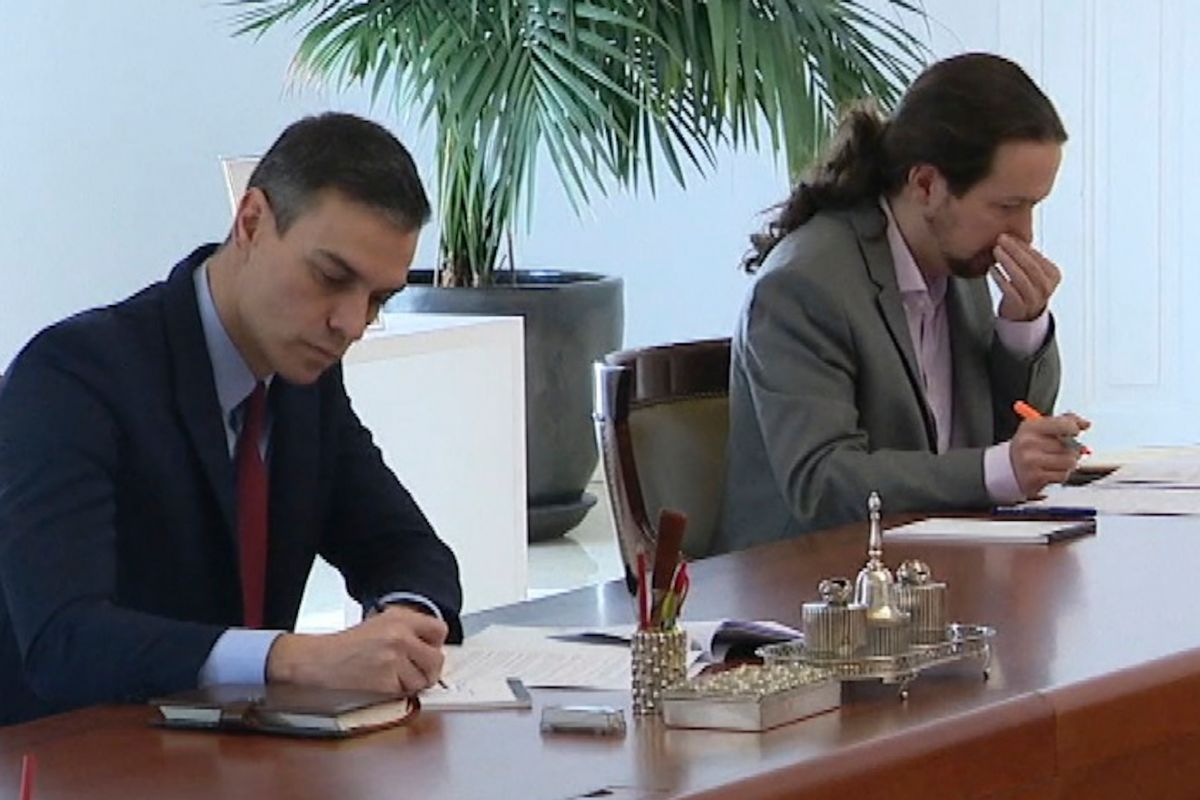The Government has used the Council of Ministers on Tuesday to shield Pablo Iglesias from entering the commission of the National Intelligence Center (CNI). In the second final provision of the draft of the Royal Decree on economic measures against coronavirus, the CNI Law is modified so that the purple leader can be part of the select group of people who monitor and evaluate the work of the intelligence services.
The law so far establishes that there can only be one vice president on the commission: in this case, Carmen Calvo. In the new articles, it will be the Prime Minister, Pedro Sánchez, who "designates" as many vice presidents as he deems necessary.
The text of the decree that this newspaper has accessed is a draft, but sources from La Moncloa confirm to EL MUNDO the modification. In addition, the reference of the Council of Ministers, which is definitive, also includes a modification of the delegated commissions, for a small "bureaucratic" nuance: to include in the law that the director of the Cabinet in the commission will be present at the meetings of the CNI commission.
Iván Redondo has always been part of the meetings, but "it just had to be included in the law, updating the person of confidence of the president in the commission," the sources added.
The Government's Delegated Commission for Intelligence Affairs is the body that controls the monitoring of the CNI's objectives and information. It is in charge of proposing to the President of the Government the annual objectives of the Center and monitoring and evaluating them afterwards. It also ensures the coordination of intelligence services and information services of the State Security forces and bodies, of the civil and military administration.
The news of the inclusion of Churches - advanced by EL MUNDO on February 22 - caused strangeness in the environment of the intelligence services, since their ministry, that of Social Rights and the 2030 Agenda, is not one of those involved in the issues of state security and stability that are dealt with in that commission. The second vice president thus obtained access to know and control all the secrets of the State, like the rest of the members of the commission.
But the PP and Vox filed separate appeals before the Supreme Court. The legal argument put forward by Vox at that time was that the Government had committed the "awkwardness" of including Iglesias without having previously changed the law that establishes that there should be only one vice president, which in this case is Carmen Calvo.
With the modification, the Executive is finally agreeing with the two main opposition parties, but at least manages to stop their resources. In fact, the modification is included in a royal decree (a figure that requires urgency).
That is why the Executive has decided to change the law. The second final provision of the decree, and always according to the draft, modifies article 6 of the CNI regulatory law, and gives a new wording to its section two: "The commission will be chaired by the Vice President of the Government appointed by its President, and made up of the Vice Presidents appointed by the President of the Government, the Ministers of Foreign Affairs, the European Union and Cooperation, and of Defense, the Minister of the Interior and the Minister of Economic Affairs and Digital Transformation, as well as the Director of the Cabinet of the Presidency of the Government, the Secretary of State for Security and the Secretary of State Director of the National Intelligence Center, who will act as Secretary ».
According to the criteria of The Trust Project
Know more- Vox
- Pablo Iglesias
- European Union
- Supreme court
- Pedro Sánchez
- Carmen Calvo
- Politics
PolíticaVox tries to stop the inclusion of Pablo Iglesias in the CNI commission in the Supreme Court
PoliticsCalvo sees it "logical" to include Iglesias in the control of the CNI and Vox warns of the "danger" of giving an "arsenal" to an "arsonist"
PoliticsThe 'hyperleaderships' bury the golden age of party apparatus

